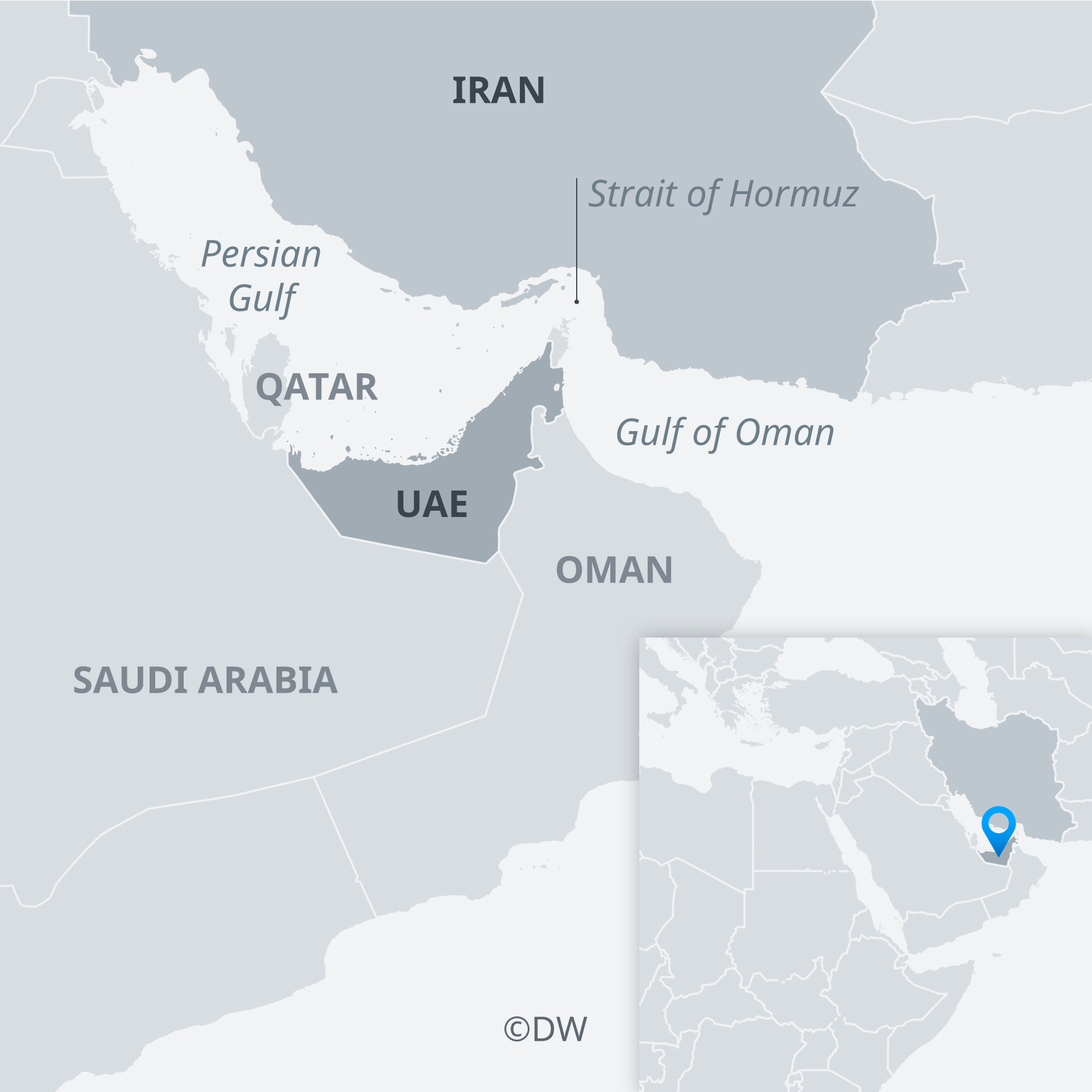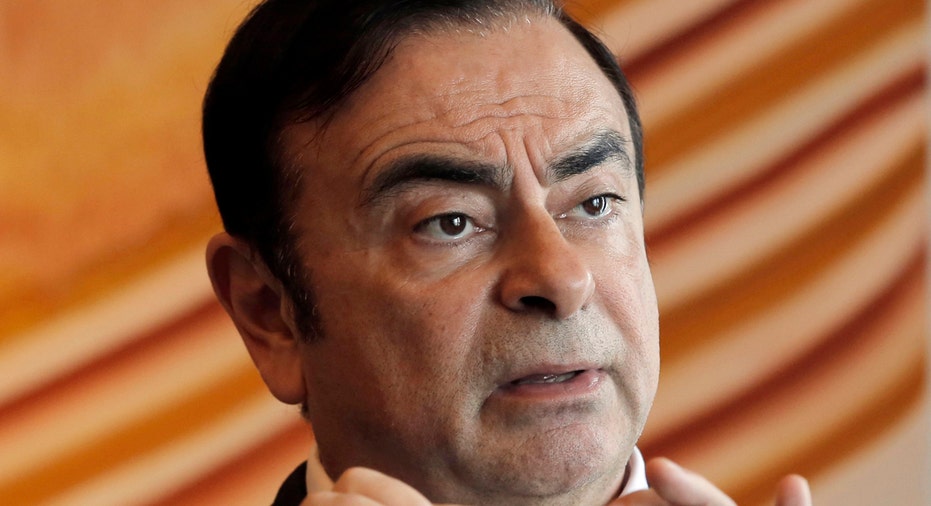The killing of a top Iranian general by the US followed by a threat of retaliation from Iran has rattled oil markets. What options does Tehran have up its sleeve, if it chooses to retaliate by disrupting oil supplies?
Oil prices breached $70 a barrel on Monday — the highest they have been since September when alleged Iran-backed drone attacks on Saudi Arabia oil facilities knocked out half of the kingdom's oil supply. The United States has warned that Tehran may retaliate with another attack on Saudi energy facilities to avenge the killing of an Iranian general last week.
Oil markets have been jittery since US air strikes killed Qassem Soleimani, who led the Revolutionary Guards' Quds force, on Friday. Brent crude has climbed more than 5% since the assassination.
"Iran is likely to conduct attacks, sometimes attributed to the Houthi, against energy, desalination, maritime and aviation assets in the United Arab Emirates (UAE) and Saudi Arabia, using cruise missiles and weaponized UAVs [unmanned aerial vehicles]," said IHS Markit Middle East analyst Ege Seckin and Director Firas Modad.
The two pundits, however, warn that such attacks could lead to a full-scale confrontation in the region.
"Unlike attacks between May and September 2019, given the willingness of the US to strike such a high-level Iranian target, the UAE and Saudi Arabia are more likely to be emboldened to respond against Iran if they are attacked," they said.
Choking the chokepoint
There are fears that Tehran may target the Strait of Hormuz — the world's most important chokepoint for global oil supplies.
Iran has threatened in the past to block the waterway — located between Oman and Iran — through which more than a fifth of the world's oil is transported.
"The most effective oil weapon — shutting the Strait of Hormuz — would damage a broad set of countries — not just the US — and may make it harder for Iran to find allies in its skirmishes with the US," CFRA Research energy analyst Stewart Glickman said. "Keep in mind though that Iran wouldn’t be selling crude oil either, and it would become a pariah in the international arena since all oil-importing nations would suffer."
While analysts doubt Iran's ability to close the strait, they agree that Tehran could target oil tankers passing through the strait as it has done in the past.
In June, the US blamed Iran for carrying out an attack on two oil tankers near the Strait of Hormuz. Iran denied any role in the assault. A month later, Iran seized a British-flagged tanker, Stena Impero, to retaliate against the UK capturing an Iranian ship.
"The shipping industry is extremely concerned. There is unending discussion by CSOs [company security officers] expressing their fears of what is to come," said Dimitris Maniatis, chief commercial officer of Diaplous, one of the largest private maritime security firms. "Everyone is trying to find the golden solution to protect their vessels in the region but to be honest, there is very little that a merchant vessel can do to avoid state aggression."
However, Maniatis says its "highly unlikely" that the Iranians will blatantly attack a merchant vessel in the region. "The worst they can do is an act similar to the Stena Impero incident," he told DW.
Bypassing the strait?
Any attempt by Iran to block the Strait of Hormuz or disrupt oil transportation through the waterway is likely to seriously hurt the global oil supply as there are few options to bypass the critical chokepoint.
Only Saudi Arabia and the UAE have pipelines that can ship crude oil outside the Persian Gulf, according to the US Energy Information Administration (EIA), but those pipelines have a capacity of shipping only 6.8 million barrels of crude oil per day (b/d). By comparison, the daily crude oil flow in the Hormuz strait averaged 17.3 million b/d in 2018.
Nearly 80% of the crude oil and condensate that moved through the strait in 2018 went to Asian countries including China, India and Japan, leaving the US, which imported just 1.4 million b/d of crude oil through the waterway, less vulnerable to any Iranian disruption.
But Iran could target US-flagged container ships that serve the US Navy's Military Sealift Command (MSC) and regularly cross into the Persian Gulf.
"Vessels with US flag or of clear US interests are the ones we identify running the highest risk of any retaliatory action," Maniatis said. "Many have expressed concern for Marshal Islands-flagged vessels as this flag state is seen as closely affiliated to the US."
'Ephemeral' bump
Several analysts expect oil prices to fall from current levels, citing weak global demand and rising production in non-OPEC countries.
"We forecast that any bump in oil prices arising from this escalation is likely ephemeral," Glickman said. "This escalation — which, certainly, has potential to expand — does not affect supply growth in other non-OPEC areas such as Brazil, Guyana or the North Sea, nor does it improve a muted 2020 oil demand outlook in our view."
Stewart points to the September attack on Saudi facilities to stress his point.
"While the attack did register a massive one-day positive impact on WTI, the boost eroded just weeks later," he said.
Goldman Sachs suggested that the risk premium had already been factored into oil prices, saying that an actual disruption to oil supplies was needed to maintain prices at current elevated levels.
Yana Popkostova, director at the European Centre for Energy and Geopolitical Analysis, says the oil markets would remain volatile over the next few months given the unpredictability surrounding Iran's response.
"Soleimani had built a highly capable network of shadow operators across the world over the past two decades and now it seems impossible to predict their retaliation," she told DW. "The uncertainty as to the unfolding of the events — as to when, how and where Iran and these proxies will embark on their vendetta poses an entirely different paradigm nevertheless. And uncertainty does not bode well for oil markets."
Every day, DW's editors send out a selection of the day's hard news and quality feature journalism. Sign up for the newsletter here.
https://news.google.com/__i/rss/rd/articles/CBMiTWh0dHBzOi8vd3d3LmR3LmNvbS9lbi93aWxsLWlyYW4tdGFyZ2V0LW9pbC10by1yZXRhbGlhdGUtYWdhaW5zdC11cy9hLTUxOTAyMzA00gFNaHR0cHM6Ly9hbXAuZHcuY29tL2VuL3dpbGwtaXJhbi10YXJnZXQtb2lsLXRvLXJldGFsaWF0ZS1hZ2FpbnN0LXVzL2EtNTE5MDIzMDQ?oc=5





